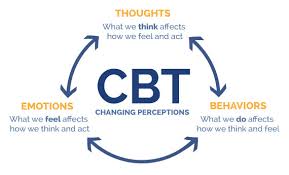Can you imagine going through your day with symptoms of extreme stress, rage, anxiety, and panic? This is a daily situation for people who suffer from misophonia, a form of a noise syndrome that alters how certain sounds effect you and your psyche. Symptoms range from moderate to severe but can be highly irritating for people just looking to make it through their day normally.
Because of advanced technology and medical improvements over time, doctors and psychologists have been able to develop treatments for misophonia. Regardless of how severe your symptoms are, you’ll be happy to know there is a treatment for you. To find out what kind or form of treatment you’d benefit from most, we can help you identify your symptoms and refer you to the best treatment for you! For information about the most common and effective treatments, take a look at the descriptions below!
Cognitive Behavioral Therapy
 One of the most typical and recommended forms of treatment for misophonia noise and sound disorders is cognitive behavioral therapy. Cognitive behavioral therapy, otherwise known as the acronym CBT, is a way to retrain the brain and develop helpful coping skills in terms of sounds that trigger the symptoms in an individual. This form of therapy is helpful for moderate to severe symptoms.
One of the most typical and recommended forms of treatment for misophonia noise and sound disorders is cognitive behavioral therapy. Cognitive behavioral therapy, otherwise known as the acronym CBT, is a way to retrain the brain and develop helpful coping skills in terms of sounds that trigger the symptoms in an individual. This form of therapy is helpful for moderate to severe symptoms.
All people are different, so no one situation is the same. That’s where cognitive behavioral therapy comes to play. This form of therapy allows for a personalized approach regarding identification and reversal of triggers. The more sessions and visits with a registered and approved provider of CBT, the better and healthier you’ll be feeling. This is due to an increase of acknowledgement of your syndrome, symptoms, and how to control how they may affect you.
Tinnitus Retraining Therapy
Frequently used in combination with cognitive behavioral therapy, tinnitus retraining therapy is a form of treatment that involves different treatments in one with hope to reverse symptoms and actions when triggered by a sound. Otherwise known as TRT, tinnitus retraining therapy allows people who suffer from misophonia to lead a normal life by incorporating pleasant sounds along with their triggers. This can be done through means of therapy, behind-ear speakers, and the development of positive associations through reinforcement measures. TRT treatment is often combined with cognitive behavioral therapy. These combined allow for greater success than when just trying to treat either the mind or the body alone.
Pharmaceutical Treatment
 The use of medications and pharmaceutical treatment is another option offered by medical professionals when attempting to treat misophonia. This method is not preferred by many professionals but is used as a way to help those with severe symptoms. It is not preferential because the use of medicine does not directly benefit or encourage the improvement of the syndrome, but it hides and covers up symptoms by tricking the body and the brain’s signals and neurons from firing.
The use of medications and pharmaceutical treatment is another option offered by medical professionals when attempting to treat misophonia. This method is not preferred by many professionals but is used as a way to help those with severe symptoms. It is not preferential because the use of medicine does not directly benefit or encourage the improvement of the syndrome, but it hides and covers up symptoms by tricking the body and the brain’s signals and neurons from firing.
If your case is severe enough and is not greatly improving with other. Forms of therapy and treatment, medical aid may be recommended. Some typical medicines prescribed can include Klonopin and Lycra.
Seeking Treatment
Some of the best ways to improve the way you feel throughout the day is you suffer from a noise disorder like misophonia is by receiving treatment from a professional. If you’re unsure of where to begin, Steven Katz LCSW can help you out. Contact the Misophonia Cognitive Center to schedule an appointment, identify your symptoms, and get you treatment! Stop living in fear of noise and get treatment today!
